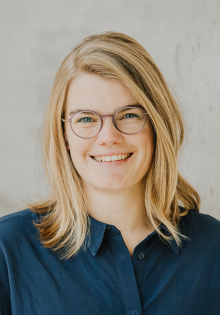Friday, 17 October, is the International Day of Developmental Language Disorder (DLD). The aim is to raise awareness of language development disorders and promote the social participation of those affected. Paderborn University is taking part in the awareness day and invites interested parties to visit an information stand in the library foyer from 10 am to 2 pm. Students on the "Teacher training programme for special educational needs with a focus on language support" will be providing information on the complex topic, answering questions about studying and working in the field and providing insights into working with children and young people with DLD. In addition to an interactive quiz, visitors can learn more about the use and support of language in (school) lessons by watching an educational video. Furthermore, Junior Professor Dr. Maren Eikerling from the Institute of German and Comparative Literature will read from the picture book "Das Kleine H?was". The reading will take place from 4 to 5 p.m. in the children's library in the Rathauspassage in Paderborn. Admission is free.
"The commitment of the students is particularly pleasing. Their motivation to share knowledge and get actively involved is a clear sign to me that the topic of DLD will be carried forward with understanding and responsibility to the next generation of teachers and professionals. I greatly appreciate this and see it as an important basis for greater sensitivity and inclusion in educational practice," says Junior Prof. Eikerling.
Language development disorders are among the most common developmental disorders in childhood, but are still relatively unknown within the population and sometimes go undetected. They can occur during a child's development and persist into adolescence and adulthood. As it is a deviation from normal language acquisition in terms of content and time, affected children reach the milestones of language development either later or in a different quality than children of the same age. The language disorders affect vocabulary, grammar, sound acquisition and non-verbal communication. "Although more children with a language development disorder are being treated today than around ten years ago, this does not automatically mean that more children are affected. However, knowledge and awareness of the topic are significantly higher today - and that's a good thing," says Junior Prof. Eikerling.
The Day of Developmental Language Disorder was initiated by a team of scientists and therapists from England - the RADLD organisation ("Raising Awareness of Developmental Language Disorder"). This year marks the ninth edition of the day.
This text was translated automatically.



